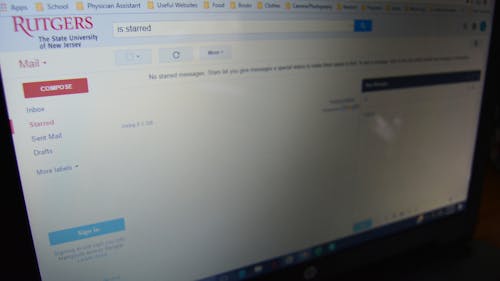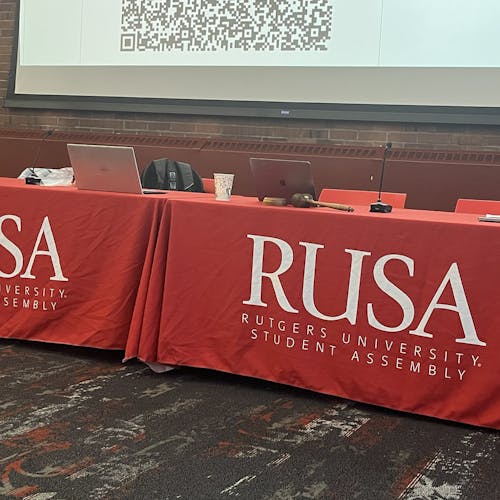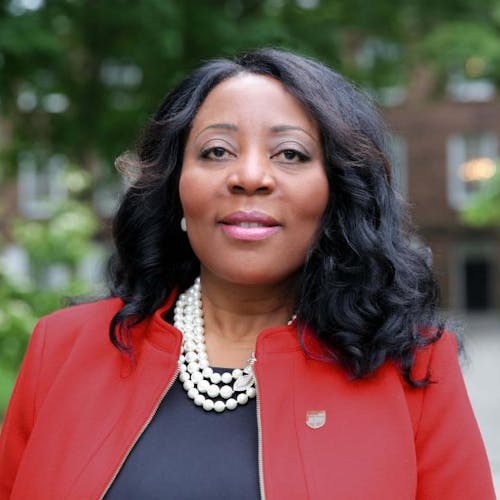New Rutgers email server faces criticism from faculty

Rutgers' adoption of a new email system called Office 365 has created tension between University administrators and the Rutgers faculty union.
In August, the administration adopted the new system Rutgers Connect, and insisted to faculty that all University business be conducted through it, said David Hughes, the president of Rutgers’ American Association of University Professors and the American Federation of Teachers (AAUP-AFT) and a professor of the Department of Anthropology.
"Office 365 is a cloud-based email and calendaring system that will provide better collaboration within and between departments, improved email and calendaring services, excellent spam and virus filtering, a resilient system with 99.95 percent uptime and a service that provides many other useful collaboration, education and business tools," according to the FAQ page of Rutgers Connect.
Hughes represents the faculty union and said he believes Rutgers Connect could potentially jeopardize academic freedom by increasing the University's ability to conduct surveillance on users. According to its website, Office 365 enhances the visibility of the workplace to managers.
Hughes said that under the new server, managers would be able to overlook everything taking place electronically at Rutgers, including student communications.
“Old Queens says they would never read people’s emails, but you have to wonder why they would spend hundreds of thousands of dollars on gaining the capacity to read our emails very easily,” he said.
Hughes said he moved off Rutgers servers as soon as he became the union's president because he assumed his new position would make him a target of administrative surveillance.
“We encouraged all of our members to remove all of their communications that were related to scholarship, pedagogy, research, union matters and all kinds of personal and political matters," Hughes said.
He said the union is working to exclude research, scholarship and pedagogy from the definition of “university business,” because unwanted access to such information constitutes an infringement on free-speech.
“Much of our academic freedoms are constituted by discussions about higher education policy, about policy and administration and debates," Hughes said.
If faculty knows they are being monitored, Hughes said they will be less likely partake in essential discussions and academic processes.
“We have a shared governance system where faculty are absolutely entitled and encouraged to dispute and exercise authority as well as advising capacity through governance," Hughes said. "This is one of the things that has made universities such a strong institutional form for 800 years."
Being able to formulate positions in opposition to Old Queens and to dispute with administrative figures of the University is crucial to the well-being of the University, he said.
“The Administration has set up policies which subject communications running through Rutgers community to surveillance and public exposure, and that is intolerable to us,” Hughes said.
Robert Scott, an associate professor of and program director of the Department of Anthropology at Rutgers, said he is skeptical of the email migration.
Under the old email system, professors could have emails forwarded automatically from their official Rutgers email address to their preferred email address, a feature unavailable in Office 365, he said.
“They have all of these tools now to snoop at will," Scott said. "It has a chilling effect on academic freedom."
Scott said ideas like these borrowed from the corporate world and imported into the University context turns the school into a business-like place.
When the free exchange of ideas is jeopardized, the essence of university is lost, Scott said.
He said the situation being experienced by Rutgers faculty right now is similar to the situation former Secretary of State Hillary Clinton experienced when she used a private email server. Like Clinton, the faculty wants to be able to conduct business that is not necessarily in the view of “Big Brother” for more personal reasons, he said.
With effort from the administration, however, he said simple compromises could be made.
“Automatic forwarding would be enabled, but you could train faculty on appropriate use of email and warn them about any potential issues with applicable laws," he said.
This issue is serious because it is about preserving academic freedom and the independence of faculty to conduct research and teach their students, which should not be under the administrations control, he said.
“Pick any issue, Rutgers faculty are doing research about all of them," Scott said. "That means taking risks, and the University is a place where we get to take risks."
Austin Leibowitz, a School of Arts and Sciences junior, said he has heard about the issues with the new server.
“I am surprised more people do not know or really care about the problems it could cause,” he said. "An essential aspect of our Constitution is our right to privacy, and the more privacy the better."
Liebowitz said as a student, he is concerned about the loss of privacy associated with the adoption of the University's new system.
"We would like to be able to carry out conversations through Rutgers servers, the most convenient mechanism possible, without fear of snooping," Hughes said.
Stephen Weiss is a School of Arts and Sciences sophomore majoring in philosophy. He is a correspondent with The Daily Targum.



